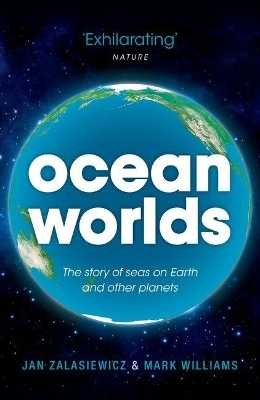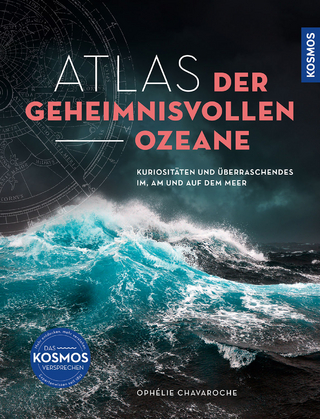
Ocean Worlds
Oxford University Press (Verlag)
978-0-19-967289-9 (ISBN)
Oceans make up most of the surface of our blue planet. They may form just a sliver on the outside of the Earth, but they are very important, not only in hosting life, including the fish and other animals on which many humans depend, but in terms of their role in the Earth system, in regulating climate, and cycling nutrients. As climate change, pollution, and over-exploitation by humans puts this precious resource at risk, it is more important than ever that we understand and appreciate the nature and history of oceans. There is much we still do not know about the story of the Earth's oceans, and we are only just beginning to find indications of oceans on other planets.
In this book, geologists Jan Zalasiewicz and Mark Williams consider the deep history of oceans, how and when they may have formed on the young Earth -- topics of intense current research -- how they became salty, and how they evolved through Earth history. We learn how oceans have formed and disappeared over millions of years, how the sea nurtured life, and what may become of our oceans in the future. We encounter some of the scientists and adventurers whose efforts led to our present understanding of oceans. And we look at clues to possible seas that may once have covered parts of Mars and Venus, that may still exist, below the surface, on moons such as Europa and Callisto, and the possibility of watery planets in other star systems.
Jan Zalasiewicz teaches and researches geology at the University of Leicester, and previously was a field geologist and biostratigrapher at the British Geological Survey. His interests range from the early Palaeozoic world of half a billion years ago to the geology of the present day. He has served with the Palaeontographical Society and the Geological Society of London, and is now Chair of the Anthropocene Working Group of the International Commission on Stratigraphy and Vice-Chair of the International Subcommission of Stratigraphic Classification. Mark Williams is a palaeontologist who teaches the geological history of climate change at the University of Leicester. He has worked as a field geologist for the British Geological and British Antarctic surveys, and served on the council of the Palaeontographical Society both as an Editor and Vice-President. Currently he is a member of the Anthropocene Working Group of the International Commission on Stratigraphy, and the Stratigraphy Commission of the Geological Society of London. Together they have co-authored The Goldilocks Planet: The four billion year story of Earth's Climate (OUP, 2012).
Preface
1: Water in the Cosmos
2: Ocean Origins on Earth
3: Ocean Forms
4: The Salt of the Earth
5: Moving the Waters
6: Life of the Oceans
7: Oceans in Crisis
8: The End of Earthly Oceans
9: Oceans of the Solar System
10: Undreamed Shores
Notes
References and Further Reading
Index
| Erscheinungsdatum | 02.12.2017 |
|---|---|
| Zusatzinfo | 18 black and white illustrations and 8pp colour plate section |
| Verlagsort | Oxford |
| Sprache | englisch |
| Maße | 130 x 196 mm |
| Gewicht | 250 g |
| Themenwelt | Sachbuch/Ratgeber ► Natur / Technik |
| Naturwissenschaften ► Geowissenschaften ► Hydrologie / Ozeanografie | |
| ISBN-10 | 0-19-967289-X / 019967289X |
| ISBN-13 | 978-0-19-967289-9 / 9780199672899 |
| Zustand | Neuware |
| Haben Sie eine Frage zum Produkt? |
aus dem Bereich


